Related Research Articles
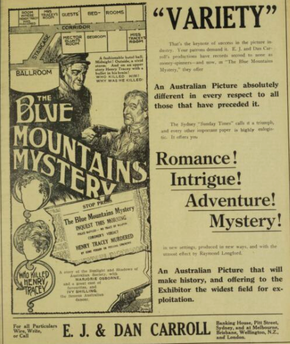
The Blue Mountains Mystery is a lost 1921 Australian silent film directed by Raymond Longford and co-directed by Lottie Lyell.
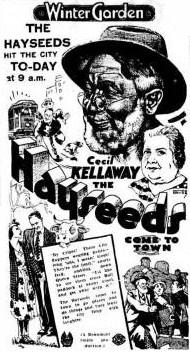
The Hayseeds is a 1933 Australian musical comedy from Beaumont Smith. It centres on the rural family, the Hayseeds, about whom Smith had previously made six silent films, starting with Our Friends, the Hayseeds (1917). He retired from directing in 1925 but decided to revive the series in the wake of the box office success of On Our Selection (1932). It was the first starring role in a movie for stage actor Cecil Kellaway.
Sheepmates was a proposed Australian film from director F. W. Thring based on a 1931 novel by William Hatfield. It commenced filming in 1933 but was abandoned.
The Fatal Wedding is a play by Theodore Kremer and a 1911 Australian silent film directed by Raymond Longford based on the melodrama, which he and Lottie Lyell had toured around Australia.
Australia Calls is a 1913 Australian silent film directed by Raymond Longford about the fictitious invasion of Australia by an unnamed Asian country.
Pommy Arrives in Australia is a 1913 Australian silent film directed by Raymond Longford. The director's first comedy, and the first purely comic feature made in Australia,
The Silence of Dean Maitland is a 1914 Australian silent film directed by Raymond Longford. It is an adaptation of the 1886 novel of the same name by Maxwell Gray which was later filmed by Ken G. Hall in 1934. It is considered a lost film.
The Dinkum Bloke is a 1923 Australian silent film directed by Raymond Longford. Despite the title and the presence of Arthur Tauchert and Lottie Lyell in the cast, the film is not a direct sequel to The Sentimental Bloke (1919) or Ginger Mick (1920).
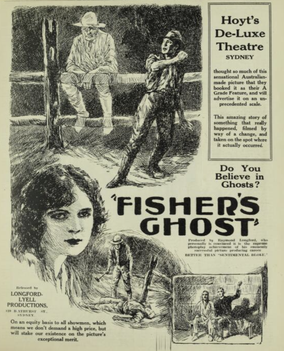
Fisher's Ghost is a 1924 Australian silent film directed by Raymond Longford based on the legend of Fisher's Ghost. It is considered a lost film.

The Bushwhackers is a 1925 Australian silent film directed by Raymond Longford loosely based on Alfred Tennyson's 1864 poem Enoch Arden. It is considered a lost film.
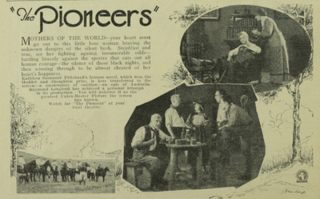
The Pioneers is a 1926 Australian silent film directed by Raymond Longford. The script had been written by Lottie Lyell but she had died by the time filming started. It was considered a lost film but some surviving footage from it has recently emerged.
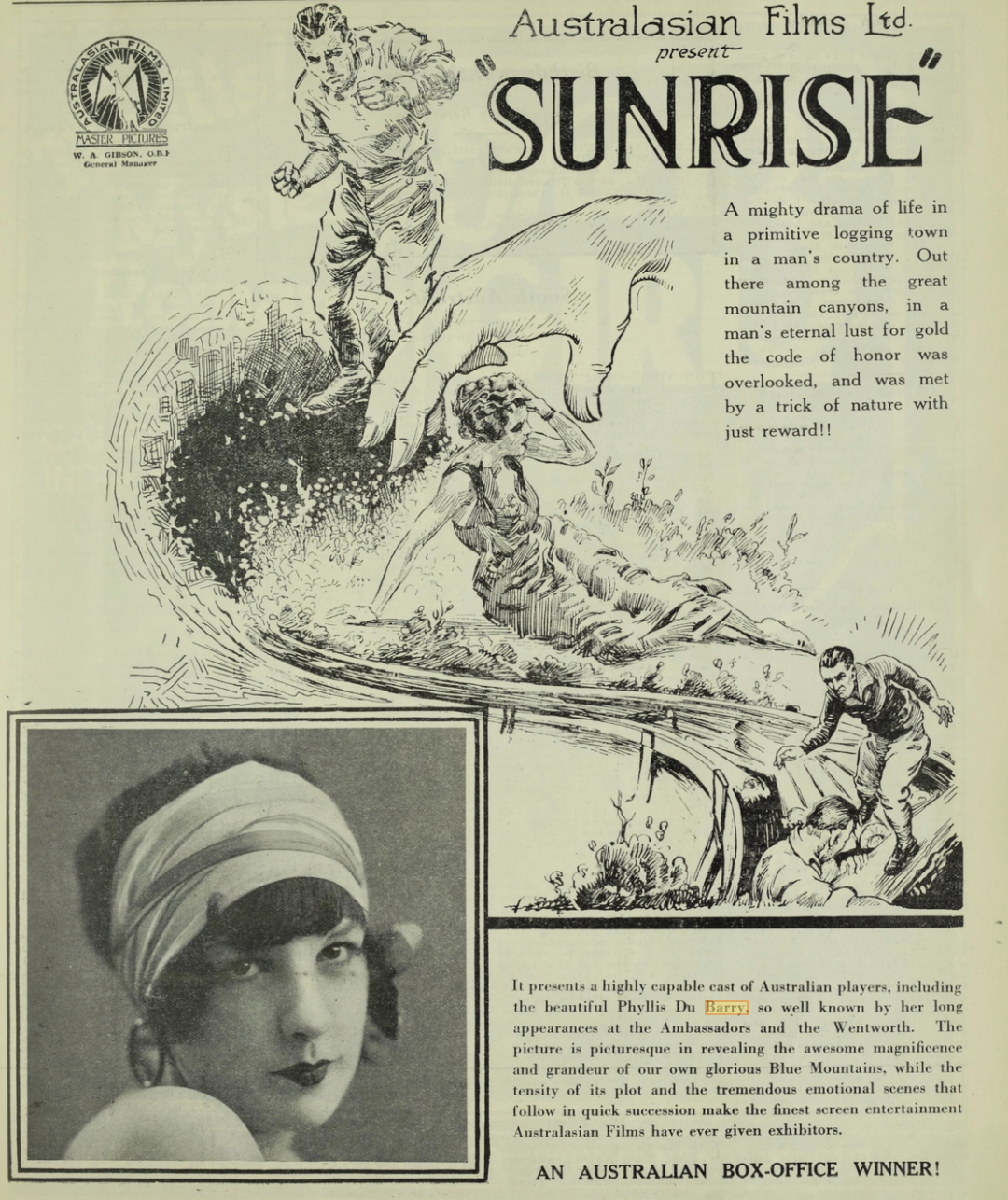
Sunrise is a 1927 Australian silent film co-directed by Raymond Longford, who took over during filming.
The Man They Could Not Hang is a 1934 Australian film directed by Raymond Longford about the life of John Babbacombe Lee, whose story had been filmed previously in 1912 and 1921.
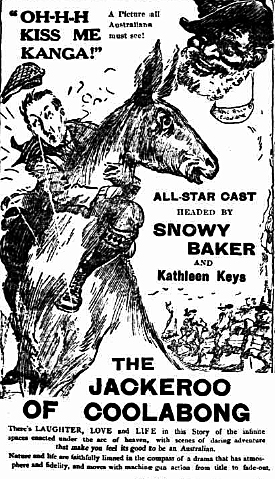
The Jackeroo of Coolabong is a 1920 Australian silent film starring renowned Australian sportsman Snowy Baker. It was the last of three films he made with the husband and wife team of director Wilfred Lucas and writer Bess Meredyth, both of whom had been imported from Hollywood.
Tall Timber is a 1926 Australian silent film about a rich man who flees the city and works in a timber mill. It is considered a lost film.
Charles Cozens Spencer was a British-born film exhibitor and producer, who was a significant figure in the early years of the Australian film industry. He produced films under the name Spencer's Pictures and was an early backer of the films of Raymond Longford. He was also instrumental in the creation of "The Combine".
The Life of a Jackeroo is a 1912 Australian silent film directed by Franklyn Barrett. It is considered a lost film.

A Rough Passage is a 1922 Australian silent film directed by Franklyn Barrett based on the novel by Arthur Wright. It was Barrett's final feature and is considered a lost film.
Painted Daughters is a 1925 Australian silent film directed F. Stuart-Whyte. Only part of it survives today.
Taking his Chance is a 1914 film from director Raymond Longford based on a poem by Henry Lawson. It was one of two short films Longford made from poems by Lawson, the other being Trooper Campbell.
References
- ↑ "Raymond Longford", Cinema Papers, January 1974 p. 51
- ↑ "Poverty Point", The Bulletin, 49 (2547), 5 December 1928, nla.obj-601877135, retrieved 6 January 2024– via Trove
- ↑ "Story of g Lost Industry Australia Once Made Films", The Bulletin, 79 (4096), 13 August 1958, nla.obj-702805906, retrieved 6 January 2024– via Trove
- ↑ Trooper Campbell at AustLit
- ↑ Trooper Campbell (1914) (extensively revised and rewritten from a lecture delivered originally at the Australian Centre for theMoving Image on February 3, 2003.)William D. Rout
- ↑ Eric Reade, History and heartburn: the saga of Australian film, 1896–1978, Fairleigh Dickinson Univ Press, 1979 p. 13
- ↑ Graham Shirley and Brian Adams, Australian Cinema: The First Eighty Years, Currency Press 1989 pp. 35–36